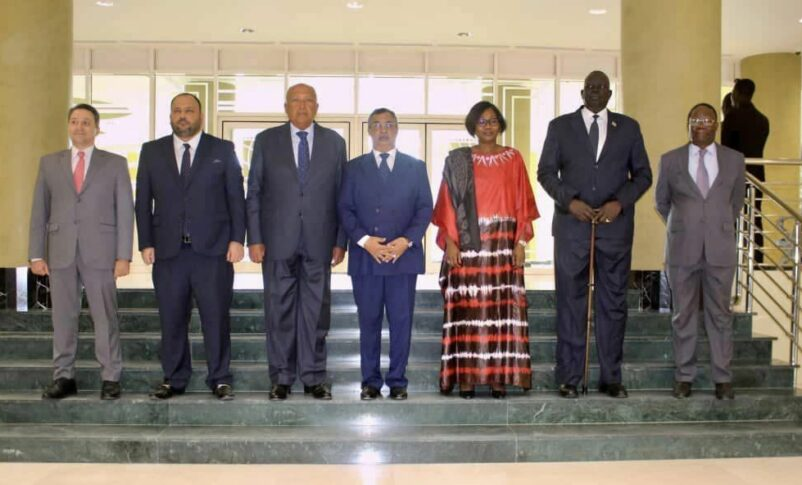In a meeting held in N’Djamena, the foreign ministers of Sudan’s neighbouring countries on Monday gave their endorsement to a comprehensive plan aimed at bringing an end to the four-month-long conflict within the country.
The two-day gathering of foreign ministers had been convened following a summit of Sudan’s neighbouring leaders last month in Cairo.
The Committee of Ministers of Foreign Affairs has formulated an action plan, which is slated for consideration and approval by the Heads of State and Government, said a statement issued at the end of the meeting.
This plan, in addition to leveraging existing mechanisms of the African Union and IGAD, is devised to facilitate a multi-faceted resolution, they said.
“The action plan has been structured into three key components, namely the achievement of a conclusive ceasefire, the organization of an all-encompassing intra-Sudanese dialogue, and the effective management of humanitarian concerns,” read a statement issued in French.
The proposed initiative arrives in the wake of the military-led administration in Khartoum rejecting efforts by the African Union to mediate the conflict, coupled with their refusal to engage with the IGAD mechanism, overseen by the Kenyan president, who has faced allegations of bias.
The foreign ministers stressed the imperative of maintaining open humanitarian corridors and called upon the conflicting parties in Sudan to expedite the provision of humanitarian aid to affected civilians.
Furthermore, they advocated for the establishment of humanitarian storage facilities in neighbouring countries to enable swift transportation of relief materials and medical aid to victims.
They also underscored the significance of direct and continuous communication with the warring factions, aiming to identify the prerequisites for a sustainable ceasefire. This includes safeguarding civilians, halting the destruction of critical infrastructure, and ensuring the unhindered functioning of essential services such as water, food, electricity, and banking facilities.
In statements made in the Chadian capital, Egyptian Foreign Minister Sameh Shoukry said that the leaders of the neighbouring countries anticipate practical and actionable solutions and suggestions to bring an end to the Sudanese crisis.
“They expect us to present a united front to achieve a single objective – convincing both sides of the conflict of the immediate necessity for a cessation of hostilities,” Shoukry emphasized.
He stressed that the Sudanese people have not been participants in this internal conflict or any of its underlying causes. He expressed hope that the initiative of neighbouring countries would serve as a lifeline for the situation.
The Foreign Minister of Chad, Saleh Nazif, conveyed that the crisis in Sudan has spilt over and impacted neighbouring countries, emphasizing that “a resolution for the Sudanese crisis necessitates sincere dialogue.”
The meeting was attended by the foreign ministers of Chad, the Central African Republic, and Egypt. While was Libya represented by a special envoy, Ethiopia was represented by its non-resident ambassador to Chad, and Eritrea was conspicuously absent.
Chadian President Mahamat Idriss Deby played host to the foreign ministers of Sudan’s neighbouring nations who participated in the inaugural session of the ministerial mechanism in N’Djamena.
The situation in Sudan has prompted Egyptian efforts to foster reconciliation among Sudanese political groups.
The Egyptian government facilitated discussions among the Forces for Freedom and Change in Cairo on July 24 and 25.

